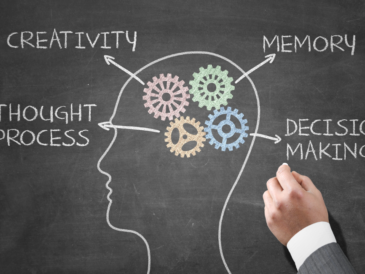We’ve all been there: wondering if we’ll ever really reach our goals. What can we do to stop preventing ourselves from achieving our goals? Feeling worthy of your goals isn’t just a nice-to-have; it’s essential for motivation, persistence, and overall well-being. It’s key to meet and keeping the right people around you. If you’re ready to transform your mindset and start believing in your potential, these scientifically backed techniques will set you on the right path.
1. Tell yourself “I love you!”
Your thoughts shape your reality. Many scientific studies show that this is true. One of my favorite books, Love Yourself Like Your Life Depends on It, by Kamal Ravikant, demonstrates this really well. Kamal started telling himself he loved himself in the mirror everyday, with confiction! Even when he didn’t feel like it. This changed how he saw himself. It’s a great practice to start with when changing your mindset. If you love yourself, you will show more love and kindness to yourself and others.
🔍 Technique: Before or after brushing your teeth or doing your make up, tell yourself “I love you!” in the mirror. Do this in the morning and at night. Do it out loud, not just in your head. Like you would do to the love of your life.
2. Self-Compassion
Treat yourself like you would treat your best friend. We try to be kind and understanding to our loved ones when they’re having a hard time, but we easily become overcritical and judgmental towards ourselves. Self-compassion, researched extensively by Dr. Kristin Neff, has been shown to reduce self-criticism and improve resilience, motivation, and grid. Naturally, it will make you feel more worthy.
❤️ Technique: Write a letter to yourself from the perspective of a compassionate friend. Imagine what they would say to encourage and support you. And when you notice self-critical thoughts, replace them with kinder, more understanding statements. Instead of thinking, “I failed, and I’m worthless,” think, “I tried my best, and it’s okay to make mistakes.”
3. Gratitude Practice
Shift your focus from what you lack to what you have. Research by psychologists like Robert Emmons and Michael McCullough shows that gratitude practice has numerous psychological benefits. It can increase your overall happiness, improve mental health, and foster positive relationships. By regularly paying attention to all the good things in your life, you’ll develop a more positive self-image.
✍️ Technique: Keep a gratitude journal or write yourself daily cards. Each day, write down three things you’re grateful for and reflect on why they matter. You can feel even more connected and worthy if you show gratitude beyond your own life. For instance, celebrate your sibling’s success, a touching scene in a movie, or a kind word from a colleague.
4. Mindfulness and Meditation
Stay present and aware without judgment. Mindfulness teaches you to observe your thoughts and emotions as they are, without labeling them as good or bad. A non-judgmental attitude allows you to recognize negative self-talk without getting consumed by it.
🧘♂️ Technique: Practice daily mindfulness meditation. Start with 2-5 minutes of focused breathing or guided meditation to center yourself. Work your way up to 10-15 minutes over the course of a couple of months.
Here are some practical techniques to add mindfulness to your daily routine:
- Mindful Breathing: Spend a few minutes each day focusing on your breath. Notice the sensation of the air entering and leaving your nostrils or the rise and fall of your chest. When your mind wanders, gently bring your attention back to your breath. If you do this whilst you are making a cup of coffee or tea, having your beverage becomes even more relaxing. And you’ll be able to extend those 2 mins a day, to 6 or 10 minutes a day, by performing it multiple times a day.
- Body Scan Meditation: Lie down or sit comfortably and slowly focus on different parts of your body, starting with your toes and moving up to your head. Without trying to change anything, notice any sensations, tension, or relaxation.
- Mindful Observation: Choose an item (like a flower or a piece of fruit) and study it carefully. Notice its colors, textures, shapes, and patterns. This practice helps you focus on the present moment.
- Mindful Eating: Pay full attention to how you eat. Take in the flavors, textures, and aromas of your food or beverage. Eat slowly and enjoy each bite, paying full attention to the act of eating. This way, you will feel even more worthy of what you are consuming and putting into your precious body.
5. Set Small, Achievable Goals
Taking small steps builds confidence and further proves your worthiness with tangible proof of your ability and competence with every task you complete. Every success will boost your self-esteem and potential, so you’ll create a success wheel. Smaller tasks have less risk and encourage a resilient mindset. Also, breaking your goals into smaller tasks helps you feel in charge of your progress, which makes you feel more confident and worthy in a shorter time.
🎯 Technique: Use SMART goals (Specific, Measurable, Achievable, Relevant, Time-bound). Celebrate each small victory to build momentum.





